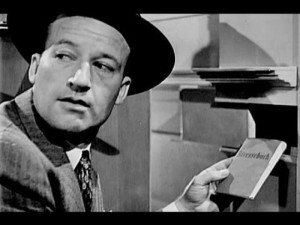Walkabout: A “Musica” Life, Part 2
Read Part 1, Part 3 and Part 4 of this story. On a cloudy day in 1913, all but two of the members of the Musica family from Bay Ridge, Brooklyn stood on a pier in New Orleans, waiting to board a steamer to Honduras by way of Panama. To anyone watching, the family was…


Read Part 1, Part 3 and Part 4 of this story.
On a cloudy day in 1913, all but two of the members of the Musica family from Bay Ridge, Brooklyn stood on a pier in New Orleans, waiting to board a steamer to Honduras by way of Panama. To anyone watching, the family was large, but unremarkable; two aging parents, and their adult and younger children. The parents were from the Old Country, speaking rapid Italian while admonishing their younger children. The oldest son and daughter, in their 20s, were the standouts; dressed in stylish and expensive clothes, the picture of wealth and success. Around them were the trunks and boxes containing the family’s possessions, ready to be loaded onto the ship. This did not look like a family on a vacation, these people looked as if they were leaving for good. And they were; the Musica family was on the run, and the law was hot on their trail.
Part One of this story will give you the background on the early life of Philip Musica. He was born Filippo Musica in Italy, the eldest son of a barber named Antonio and his wife, Marie. The three immigrated to New York when Filippo was a child, and he grew up in the tenements of Little Italy. His father opened a barbershop, and later, a grocery store, and it was there that young Filippo became Phillip, striving to achieve the American Dream. By the time he was a teenager, he had dropped out of school to run the store, and had branched out into importing. He was bringing in shipments of Italian cheeses, olive oil, pasta and other specialty provisions, and his father’s shop soon became one of the most profitable Italian importers in New York.
Philip might have become a food giant, except for one thing – he had discovered that fraud paid a lot better than legit business. He had taken the first steps on his path to become one of the greatest con men of the 20th century. He was importing vast quantities of foodstuffs into the country, but he was cooking the books with fraudulent invoices and bills of lading, taking advantage of crooked port officials and indifferent customs procedures.
His doctored invoices only showed half of what he was actually bringing in, and he paid off the customs officials to look the other way. Consequently, he only paid taxes and duties on a fraction of his goods, allowing him to charge less for them, undercutting other importers. But after a while, he was caught in a general cleanup of the docks, and went to jail for 6 months of a year’s sentence.
Instead of being scared straight, Philip had already planned his next business venture. He left the food business and went into the hair business. Taking advantage of a fashion trend for enormous women’s coiffurs, he was importing long hanks of human hair from the villages of Europe, which was made into hairpieces for the fashionable women of America in the first decade of the 20th century. Long human hair could sell for as much as $800 a pound in the United States. Philip and his mother set up their business, beginning in Italy, and soon had the interest of a great many European banks.
Again, this could have been a very successful legitimate business, but Phillip Musica couldn’t help but run a scam. Showing the banks their company offices all over Europe, bills of lading and invoices, the Musicas convinced the banks that they were shipping vast amounts of hair back to the States, and the company had a stockpile worth millions in warehouses in New York. His company, United States Hair, was soon financed with $2 million worth of loans and bank guarantees. Phillip took the company public, and saw his stock go from $2 share to $10 in days. He was a millionaire.
All was great, except it was all lies. There was no hair there. They were shipping crates of hair to a warehouse in NY, but the crates were packed full of packing materials and low grade short pieces of hair gathered from the floors of barbershops and institutions all across Europe. Should anyone care to inspect, opening a crate would show the superior long hair packed on top. But it was only on top. Underneath was garbage. It was the classic con.
Like the food business, this con could have gone on much longer, had it not been for greed. First, a British bank declined his credit, forcing Phillip to get financing from the Bank of Manhattan to shore up his failing European banking operation. He submitted paperwork showing the wealth of his business and inventory which consisted of 216 crates of hair in a warehouse. He also began liquidating his assets, just in case.
But a sharp eyed clerk at the bank saw some invoices he felt were doctored, reported it to his superiors, and they decided they wanted to look at the inventory Phillip was using as collateral. They went to the warehouse, opened up some crates, and found that the inventory, supposedly worth close to a million dollars, was in fact worth $250. The Musica family grabbed their valuables and fled from their Bay Ridge mansion to New Orleans, only a few steps ahead of the marshals. Honduras had no extradition treaty with the US at the time, and they would have been safe.
They didn’t make it. Philip, who was a meticulous planner in his cons, had gotten sloppy. He maintained a pied-a-terre at a Manhattan hotel, and had arranged for them to send a trunk of clothing down to New Orleans. A private investigator hired by the bank traced the trunk to the pier. The newspapers reported that Louise, the eldest daughter, was attempting to throw $18,000 in cash in the ocean when the police surrounded them. Papa Musica pulled out a gun, and tried to shoot himself, but Philip grabbed it, threw it away, and surrendered. The police found $80,000 in cash in their belongings and a small bag of uncut diamonds on Phillip.
When the case came to trial, Phillip took all the blame and responsibility. He pled guilty, and told the judge that the rest of the family had nothing to do with the business. His mother had been on legit hair buying trips to Europe, his father was a proud old man, and his brothers and sisters were guilty of nothing other than enjoying the family wealth. He had only recently found out that two European firms he had purchased hair from had bilked him, and the inventory that had been in the NY warehouse was evidence of their cheating him out of millions. If he had tried to make some money from that, well, he had been desperate. It was wrong, and he was sorry.
Unbelievably, the judge bought it. The rest of the family was cleared, and Philip was sentenced to a three year stay at the Tombs, the Manhattan jail, instead of state or federal prison. Jail is jail, but the Tombs was a lot better than going upstate and doing hard time. He soon found a new occupation in jail – snitch. He was soon the go-to guy in the Tombs for the authorities. He informed on prisoners in exchange for favors and their good will. In 1916, the rest of his sentence was dismissed, and he was given an early release. His reputation among prisoners was understandably bad, no one likes a snitch, and Phillip Musica once again changed his name, and morphed into someone new, and began a new life.
The authorities were still keeping an eye on him, so Phillip decided to work with them, instead of against them, for a while. He changed his name to William Johnson, and spent the next three years working for the New York State Attorney General’s office as a special investigator. His biggest case was that of the murder of a poultry dealer named Barnet Baff. He pegged a man named Joseph Cohen for the murder, and found witnesses, gangsters actually, who testified that they had overheard Cohen brag about the murder in a Harlem barbershop. He also found two other convicts in Sing Sing who were also ready to testify as to Cohen’s guilt. Cohen was convicted and sentenced to death, but his attorney appealed, and the judge, who didn’t like the whole mess, commuted the sentence.
“Johnson” also worked on catching German spies at the dawn of World War I, and when the draft was instituted, tracked down draft dodgers. He was also investigating enemy plots and looking for traitors. His career at the AG’s office ended when he tried to implicate William Randolph Hearst in a plot that cast the powerful newspaper publisher as a German collaborator. During the entire US Hair fiasco, Hearst’s newspapers had not treated Phillip Musica well, and for “William Johnson,” it was payback time. When painting Hearst as a traitor failed, Johnson left for private practice.
By the war’s end, he was working for the other side, as an investigator for attorneys defending Italian and other mobsters. He was very good at his job, and was well liked by everyone, even the people in the court system who knew his real name and background. He was a gentle, charming man, made friends easily and was fond of bringing small gifts and treats for the children of his clients.
But before long, William Johnson was outed as Phillip Musica by a Senate investigation into wartime espionage activities. Alfred Becker, who had been with the AG’s office during the war, was hammered by a Senator Jim Reed, on allegations that they had used a known felon to procure evidence of German espionage. Reed revealed Musica’s real name and his part in those spy games, trying to implicate Becker and the Attorney General’s office of wrongdoing. He was not able to crack Becker, but the damage to Phillip Musica was done. Or was it?
By that time, Musica had left his job with the defense attorneys, and like a chameleon, had slipped away into invisibility. No one knew where he was, or what he was doing. “William Johnson” was gone. Phillip Musica was also gone. It was 1920. Prohibition had been instituted, and the Roaring Twenties was off to a dry start. That same year, a new business opened in Yonkers. It was called the Adelphi Pharmaceutical Company, the makers of a hair tonic called “Dandrafuge.” The principles of the company were a man named Joseph Brandino and his partner, Frank D. Costa. Had the company taken a photograph of their owners, one might have noticed that Mr. Costa looked awfully familiar. Yep, Phillip Musica was back. And what was he up to now?
Next time: Dandrafuge? Why were people buying it like there was no tomorrow, during the beginning years of Prohibition? This miracle product could grow hair on a stone, they said. That’s great, but it might have had more to do with the grain alcohol that was one of the main ingredients. Phillip Musica was going to get his millions back.
Read Part 1, Part 3 and Part 4 of this story.
(Top photo via hwdefault.com.





What's Your Take? Leave a Comment